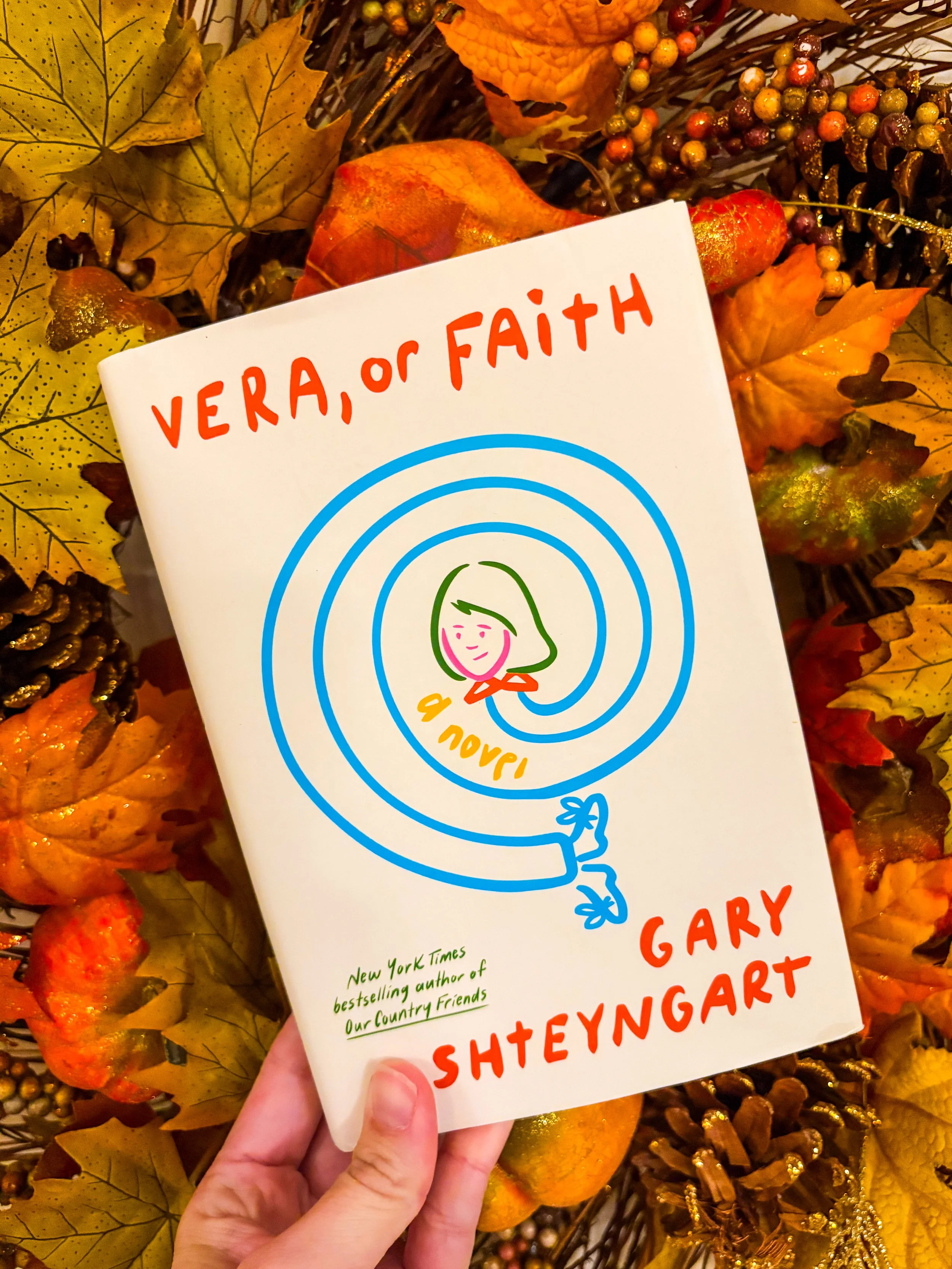Vera, or Faith
Vera, or Faith Book Review by Gary Shteyngart
Vera, or Faith—A book about everything and also somehow nothing. It follows ten-year-old Vera, a precocious, big-hearted, neurotic kid growing up in an absurd, near-future version of America where politics are crumbling, billionaires are hoarding bunkers like Pokémon, and everyone seems to be teetering on the edge of a mental or moral breakdown.
Vera lives in a wealthy, decaying city with her father—a lazy schemer allergic to emotional availability—and Anne-Mom, a mother so self-centered and random in her behavior that I genuinely questioned whether she wandered in from another (worse) manuscript.
Vera’s younger brother, meanwhile, radiates the unique flavor of an irritating young boy you’d like to punch, but can’t (even though he’s hitting Vera non-stop).
But Vera? Vera is kind. Flashlight-bright. Weird in the best ways. She has a natural talent for seeing the softness in people, a philosophical curiosity well beyond her age, and the uncanny ability to hold the entire emotional weight of the household like she’s the only adult in the room—which, frankly, she basically is.
When Vera befriends Yumi, a girl from a very different socio-economic world, and Kaspie, a chess-playing AI with more moral sense than most humans in the book, things briefly look up.
Meanwhile, Shteyngart threads in a backdrop of political disintegration—protests, collapsing institutions, billionaires acting more insane than usual. This simmering chaos is meant to underscore Vera’s personal journey, though it mostly just clutters the narrative.
Eventually, a series of events forces Vera to confront the dysfunction of her home and the moral failings of the adults who are supposed to protect her.
The book then barrels into a rushed ending that feels suspiciously like Shteyngart looked at his page count, realized he had hit quota, and said, “Ah, yes, now is the time for sudden plot.” The final moments hinge on coincidences and convenient timing—very deus ex machina, very “we need to wrap up by Thursday morning.”
And then… it ends. Abruptly. With very few moments to feel the emotions the book wants you to.
This book, while… fine, just felt completely pointless to me. I swear, the only thing keeping it from being a total flop was Vera herself. I am not someone who easily praises child narrators—usually they’re written either too precocious to be believable or too cutesy in a way that gives me secondhand embarrassment.
But Shteyngart actually nailed it here. Vera is whip-smart, observant, compassionate, and genuinely delightful to read. Given her absolutely terrible parents and brother, it’s honestly a miracle she turned out as well as she did.
But other than Vera (and Yumi! And Kaspie the chess robot! And Stephen!), every other component of this book just… sucked.
Anne-Mom? Horrendous. Her father? Emotionally absent to the point of parody. Her brother? An empty bully.
For a book so short, Shteyngart tries to shove in enough political commentary to fill a 600-page dystopia, but because he only gestures vaguely at it (“society collapsing something something billionaires something”), it feels pointless.
If you’re not going to explore the political landscape with depth, why include it at all?
The whole book felt too thin—like a short story that someone stretched into a novel by adding background noise. By the time we reach the ending, which comes out of nowhere and resolves itself through sheer coincidence.
I was honestly just confused at how something so underdeveloped could be so dramatically wrapped up.
And that’s the thing: it could have been something. There are glimmers of heart, humor, and insight scattered throughout. But nothing coheres, nothing pays off, and nothing feels like it has a real purpose.
Recommendation: Overall, this book was… fine. Not terrible, not offensive, but deeply forgettable. Vera deserved a better novel. And honestly, so did I.
Score: 4/10




